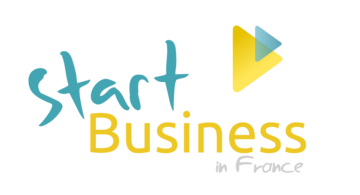In this article, we’re looking at the difference between social charges and income tax. I know it's quite confusing when arriving in France, as you don't really know which one is which…
Social charges are paid by your business
Social charges are paid by entrepreneurs to URSSAF. Your business is paying "charges sociales" to URSSAF and these go towards your health cover, your pension, a training fund, and the generic French system.
Social charges vary depending on the type of business you have. This is referred to as “regime social”. Think about it as a diet - your taxes are going to be different according to the type of business you have.
Regime social micro
For instance, micro-entrepreneurs are under “regime social micro” and are paying a fixed percentage of their turnover towards their social charges. The key advantage of the micro entrepreneur is that you always know where you stand, as you pay a fixed percentage of your sales towards those social charges.
Regime reel simplifie
If you choose a different business type, such as entreprise individuelle, or a French incorporated business such as EURL or SARL, you are going to be on “régime réel simplifié”. It’s a bit of a mouthful for this one! This is when your social charges are based on your profits.
It is tougher to assess your social charges, as we’ll only know your profit in a year’s time. This is why with regime reel simplifie, we start paying towards the social charges, but one year later, there is a lump-sum amount to pay called "régularisation de charges sociales" based on your actual profit. You can see that with this regime you have to be organised and save money in order to pay this lump sum.
Impôt or Income tax is paid by you as an individual
What most people don't realise is that you, as an individual, are also going to be paying some income tax “Impot sur le Revenu”. This is paid to the tax office, referred to as impots, also called Finances Publiques or Tresorerie.
As an individual living and earning an income in France, you have to declare and maybe pay some income tax. Your income basically refers to your entrepreneur's income, as well as any salary, private or pension public, and any rental income.
Income tax has to be declared once a year in May
Income tax “import sur le revenu” is declared on a calendar year - 1st January to 31st December. We’ll declare this income one year later. For instance, anything earned in 2022, will be declared in May 2023. You have to complete this declaration every year, whatever your situation.
France had moved to “impot liberatoire”, where employees or pensioners pay their income tax at source (taken from their salary or pension). But this is very difficult to apply to entrepreneurs, whose income we’re unlikely to know in advance.
Micro entrepreneurs can apply for “import liberatoire” and pay it at the same time as their social charges to URSSAF. But this only covers their business income and not their rental, salary or pension income if they have any. Micro entrepreneurs still have to file a yearly income tax form to declare their overall income.
For other business types, we declare and pay the income tax one year later. For safety, just save 10% of your income or make a simulation on impots website to take into account your personal situation (overall income, spouse/civil union, children, dividends, etc).

